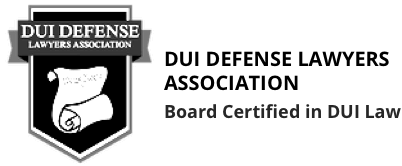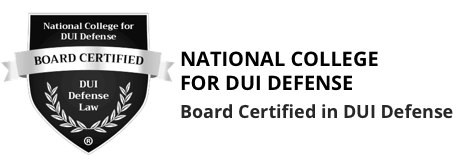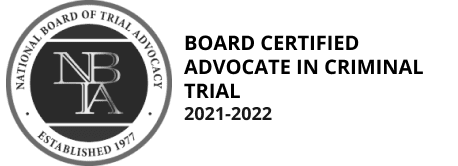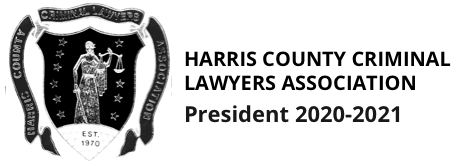TEXAS PENAL CODE Chapter 43
TITLE 9. OFFENSES AGAINST PUBLIC ORDER AND DECENCY
CHAPTER 43. PUBLIC INDECENCY
Sec. 43.01. DEFINITIONS. In this subchapter:
- (1) “Deviate sexual intercourse” means any contact between the genitals of one person and the mouth or anus of another person.
- (2) “Prostitution” means the offense defined in Section 43.02.
- (3) “Sexual contact” means any touching of the anus, breast, or any part of the genitals of another person with intent to arouse or gratify the sexual desire of any person.
- (4) “Sexual conduct” includes deviate sexual intercourse, sexual contact, and sexual intercourse.
- (5) “Sexual intercourse” means any penetration of the female sex organ by the male sex organ.
Sec. 43.02. PROSTITUTION. (a) A person commits an offense if he knowingly:
- (1) offers to engage, agrees to engage, or engages in sexual conduct for a fee; or
- (2) solicits another in a public place to engage with him in sexual conduct for hire.
(b) An offense is established under Subsection (a)(1) whether the actor is to receive or pay a fee. An offense is established under Subsection (a)(2) whether the actor solicits a person to hire him or offers to hire the person solicited.
(c) An offense under this section is a Class B misdemeanor, unless the actor has previously been convicted one or two times of an offense under this section, in which event it is a Class A misdemeanor. If the actor has previously been convicted three or more times of an offense under this section, the offense is a state jail felony.
(d) It is a defense to prosecution under this section that the actor engaged in the conduct that constitutes the offense because the actor was the victim of conduct that constitutes an offense under Section 20A.02.
Sec. 43.03. PROMOTION OF PROSTITUTION. (a) A person commits an offense if, acting other than as a prostitute receiving compensation for personally rendered prostitution services, he or she knowingly:
- (1) receives money or other property pursuant to an agreement to participate in the proceeds of prostitution; or
- (2) solicits another to engage in sexual conduct with another person for compensation.
(b) An offense under this section is a Class A misdemeanor.
Sec. 43.04. AGGRAVATED PROMOTION OF PROSTITUTION. (a) A person commits an offense if he knowingly owns, invests in, finances, controls, supervises, or manages a prostitution enterprise that uses two or more prostitutes.
(b) An offense under this section is a felony of the third degree.
Sec. 43.05. COMPELLING PROSTITUTION. (a) A person commits an offense if the person knowingly:
- (1) causes another by force, threat, or fraud to commit prostitution; or
- (2) causes by any means a child younger than 18 years to commit prostitution, regardless of whether the actor knows the age of the child at the time the actor commits the offense.
(b) An offense under this section is a felony of the second degree.
Sec. 43.06. ACCOMPLICE WITNESS; TESTIMONY AND IMMUNITY. (a) A party to an offense under this subchapter may be required to furnish evidence or testify about the offense.
(b) A party to an offense under this subchapter may not be prosecuted for any offense about which he is required to furnish evidence or testify, and the evidence and testimony may not be used against the party in any adjudicatory proceeding except a prosecution for aggravated perjury.
(c) For purposes of this section, “adjudicatory proceeding” means a proceeding before a court or any other agency of government in which the legal rights, powers, duties, or privileges of specified parties are determined.
(d) A conviction under this subchapter may be had upon the uncorroborated testimony of a party to the offense.
Sec. 43.21. DEFINITIONS. (a) In this subchapter:
-
(1) “Obscene” means material or a performance that:
- (A) the average person, applying contemporary community standards, would find that taken as a whole appeals to the prurient interest in sex;
- (B) depicts or describes:
- (i) patently offensive representations or descriptions of ultimate sexual acts, normal or perverted, actual or simulated, including sexual intercourse, sodomy, and sexual bestiality; or
- (ii) patently offensive representations or descriptions of masturbation, excretory functions, sadism, masochism, lewd exhibition of the genitals, the male or female genitals in a state of sexual stimulation or arousal, covered male genitals in a discernibly turgid state or a device designed and marketed as useful primarily for stimulation of the human genital organs; and
- (C) taken as a whole, lacks serious literary, artistic, political, and scientific value.
(2) “Material” means anything tangible that is capable of being used or adapted to arouse interest, whether through the medium of reading, observation, sound, or in any other manner, but does not include an actual three dimensional obscene device.
(3) “Performance” means a play, motion picture, dance, or other exhibition performed before an audience.
(4) “Patently offensive” means so offensive on its face as to affront current community standards of decency.
(5) “Promote” means to manufacture, issue, sell, give, provide, lend, mail, deliver, transfer, transmit, publish, distribute, circulate, disseminate, present, exhibit, or advertise, or to offer or agree to do the same.
(6) “Wholesale promote” means to manufacture, issue, sell, provide, mail, deliver, transfer, transmit, publish, distribute, circulate, disseminate, or to offer or agree to do the same for purpose of resale.
(7) “Obscene device” means a device including a dildo or artificial vagina, designed or marketed as useful primarily for the stimulation of human genital organs.
(b) If any of the depictions or descriptions of sexual conduct described in this section are declared by a court of competent jurisdiction to be unlawfully included herein, this declaration shall not invalidate this section as to other patently offensive sexual conduct included herein.
Sec. 43.22. OBSCENE DISPLAY OR DISTRIBUTION. (a) A person commits an offense if he intentionally or knowingly displays or distributes an obscene photograph, drawing, or similar visual representation or other obscene material and is reckless about whether a person is present who will be offended or alarmed by the display or distribution.
(b) An offense under this section is a Class C misdemeanor.
Sec. 43.23. OBSCENITY. (a) A person commits an offense if, knowing its content and character, he wholesale promotes or possesses with intent to wholesale promote any obscene material or obscene device.
(b) Except as provided by Subsection (h), an offense under Subsection (a) is a state jail felony.
(c) A person commits an offense if, knowing its content and character, he:
- (1) promotes or possesses with intent to promote any obscene material or obscene device; or
- (2) produces, presents, or directs an obscene performance or participates in a portion thereof that is obscene or that contributes to its obscenity.
(d) Except as provided by Subsection (h), an offense under Subsection (c) is a Class A misdemeanor.
(e) A person who promotes or wholesale promotes obscene material or an obscene device or possesses the same with intent to promote or wholesale promote it in the course of his business is presumed to do so with knowledge of its content and character.
(f) A person who possesses six or more obscene devices or identical or similar obscene articles is presumed to possess them with intent to promote the same.
(g) It is an affirmative defense to prosecution under this section that the person who possesses or promotes material or a device proscribed by this section does so for a bona fide medical, psychiatric, judicial, legislative, or law enforcement purpose.
(h) The punishment for an offense under Subsection (a) is increased to the punishment for a felony of the third degree and the punishment for an offense under Subsection (c) is increased to the punishment for a state jail felony if it is shown on the trial of the offense that obscene material that is the subject of the offense visually depicts activities described by Section 43.21(a)(1)(B) engaged in by:
- (1) a child younger than 18 years of age at the time the image of the child was made;
- (2) an image that to a reasonable person would be virtually indistinguishable from the image of a child younger than 18 years of age; or
(3) an image created, adapted, or modified to be the image of an identifiable child.
-
(i) In this section, “identifiable child” means a person, recognizable as an actual person by the person’s face, likeness, or other distinguishing characteristic, such as a unique birthmark or other recognizable feature:
- (1) who was younger than 18 years of age at the time the visual depiction was created, adapted, or modified; or
- (2) whose image as a person younger than 18 years of age was used in creating, adapting, or modifying the visual depiction.
(j) An attorney representing the state who seeks an increase in punishment under Subsection (h)(3) is not required to prove the actual identity of an identifiable child.
Sec. 43.24. SALE, DISTRIBUTION, OR DISPLAY OF HARMFUL MATERIAL TO MINOR. (a) For purposes of this section:
- (1) “Minor” means an individual younger than 18 years.
- (2) “Harmful material” means material whose dominant theme taken as a whole:
- (A) appeals to the prurient interest of a minor, in sex, nudity, or excretion;
- (B) is patently offensive to prevailing standards in the adult community as a whole with respect to what is suitable for minors; and
- (C) is utterly without redeeming social value for minors.
(b) A person commits an offense if, knowing that the material is harmful:
- (1) and knowing the person is a minor, he sells, distributes, exhibits, or possesses for sale, distribution, or exhibition to a minor harmful material;
- (2) he displays harmful material and is reckless about whether a minor is present who will be offended or alarmed by the display; or
- (3) he hires, employs, or uses a minor to do or accomplish or assist in doing or accomplishing any of the acts prohibited in Subsection (b)(1) or (b)(2).
(c) It is a defense to prosecution under this section that:
- (1) the sale, distribution, or exhibition was by a person having scientific, educational, governmental, or other similar justification; or
- (2) the sale, distribution, or exhibition was to a minor who was accompanied by a consenting parent, guardian, or spouse.
(d) An offense under this section is a Class A misdemeanor unless it is committed under Subsection (b)(3) in which event it is a felony of the third degree.
Sec. 43.25. SEXUAL PERFORMANCE BY A CHILD. (a) In this section:
- (1) “Sexual performance” means any performance or part thereof that includes sexual conduct by a child younger than 18 years of age.
- (2) “Sexual conduct” means sexual contact, actual or simulated sexual intercourse, deviate sexual intercourse, sexual bestiality, masturbation, sado-masochistic abuse, or lewd exhibition of the genitals, the anus, or any portion of the female breast below the top of the areola.
- (3) “Performance” means any play, motion picture, photograph, dance, or other visual representation that can be exhibited before an audience of one or more persons.
- (4) “Produce” with respect to a sexual performance includes any conduct that directly contributes to the creation or manufacture of the sexual performance.
- (5) “Promote” means to procure, manufacture, issue, sell, give, provide, lend, mail, deliver, transfer, transmit, publish, distribute, circulate, disseminate, present, exhibit, or advertise or to offer or agree to do any of the above.
- (6) “Simulated” means the explicit depiction of sexual conduct that creates the appearance of actual sexual conduct and during which a person engaging in the conduct exhibits any uncovered portion of the breasts, genitals, or buttocks.
- (7) “Deviate sexual intercourse” and “sexual contact” have the meanings assigned by Section 43.01.
(b) A person commits an offense if, knowing the character and content thereof, he employs, authorizes, or induces a child younger than 18 years of age to engage in sexual conduct or a sexual performance. A parent or legal guardian or custodian of a child younger than 18 years of age commits an offense if he consents to the participation by the child in a sexual performance.
(c) An offense under Subsection (b) is a felony of the second degree, except that the offense is a felony of the first degree if the victim is younger than 14 years of age at the time the offense is committed.
(d) A person commits an offense if, knowing the character and content of the material, he produces, directs, or promotes a performance that includes sexual conduct by a child younger than 18 years of age.
(e) An offense under Subsection (d) is a felony of the third degree, except that the offense is a felony of the second degree if the victim is younger than 14 years of age at the time the offense is committed.
(f) It is an affirmative defense to a prosecution under this section that:
- (1) the defendant was the spouse of the child at the time of the offense;
- (2) the conduct was for a bona fide educational, medical, psychological, psychiatric, judicial, law enforcement, or legislative purpose; or
- (3) the defendant is not more than two years older than the child.
(g) When it becomes necessary for the purposes of this section or Section 43.26 to determine whether a child who participated in sexual conduct was younger than 18 years of age, the court or jury may make this determination by any of the following methods:
- (1) personal inspection of the child;
- (2) inspection of the photograph or motion picture that shows the child engaging in the sexual performance;
- (3) oral testimony by a witness to the sexual performance as to the age of the child based on the child’s appearance at the time;
- (4) expert medical testimony based on the appearance of the child engaging in the sexual performance; or
- (5) any other method authorized by law or by the rules of evidence at common law.
Sec. 43.251. EMPLOYMENT HARMFUL TO CHILDREN. (a) In this section:
- (1) “Child” means a person younger than 18 years of age.
- (2) “Massage” has the meaning assigned to the term “massage therapy” by Section 455.001, Occupations Code.
- (3) “Massage establishment” has the meaning assigned by Section 455.001, Occupations Code.
-
(4) “Nude” means a child who is:
- (A) entirely unclothed; or
- (B) clothed in a manner that leaves uncovered or visible through less than fully opaque clothing any portion of the breasts below the top of the areola of the breasts, if the child is female, or any portion of the genitals or buttocks.
- (5) “Sexually oriented commercial activity” means a massage establishment, nude studio, modeling studio, love parlor, or other similar commercial enterprise the primary business of which is the offering of a service that is intended to provide sexual stimulation or sexual gratification to the customer.
- (6) “Topless” means a female child clothed in a manner that leaves uncovered or visible through less than fully opaque clothing any portion of her breasts below the top of the areola.
(b) A person commits an offense if the person employs, authorizes, or induces a child to work:
- (1) in a sexually oriented commercial activity; or
- (2) in any place of business permitting, requesting, or requiring a child to work nude or topless.
(c) An offense under this section is a Class A misdemeanor.
Sec. 43.26. POSSESSION OR PROMOTION OF CHILD PORNOGRAPHY. (a) A person commits an offense if:
- (1) the person knowingly or intentionally possesses visual material that visually depicts a child younger than 18 years of age at the time the image of the child was made who is engaging in sexual conduct; and
- (2) the person knows that the material depicts the child as described by Subdivision (1).
(b) In this section:
- (1) “Promote” has the meaning assigned by Section 43.25.
- (2) “Sexual conduct” has the meaning assigned by Section 43.25.
- (3) “Visual material” means:
- (A) any film, photograph, videotape, negative, or slide or any photographic reproduction that contains or incorporates in any manner any film, photograph, videotape, negative, or slide; or
- (B) any disk, diskette, or other physical medium that allows an image to be displayed on a computer or other video screen and any image transmitted to a computer or other video screen by telephone line, cable, satellite transmission, or other method.
(c) The affirmative defenses provided by Section 43.25(f) also apply to a prosecution under this section.
(d) An offense under Subsection (a) is a felony of the third degree.
(e) A person commits an offense if:
- (1) the person knowingly or intentionally promotes or possesses with intent to promote material described by Subsection (a)(1); and
- (2) the person knows that the material depicts the child as described by Subsection (a)(1).
(f) A person who possesses visual material that contains six or more identical visual depictions of a child as described by Subsection (a)(1) is presumed to possess the material with the intent to promote the material.
(g) An offense under Subsection (e) is a felony of the second degree.
NOTE: This information is NOT LEGAL ADVICE. It is provided for EDUCATIONAL USE ONLY. If you need legal advice regarding a criminal matter in the State of Texas, please contact MARK THIESSEN at 713-864-9000 or fill out a brief case evaluation form.














